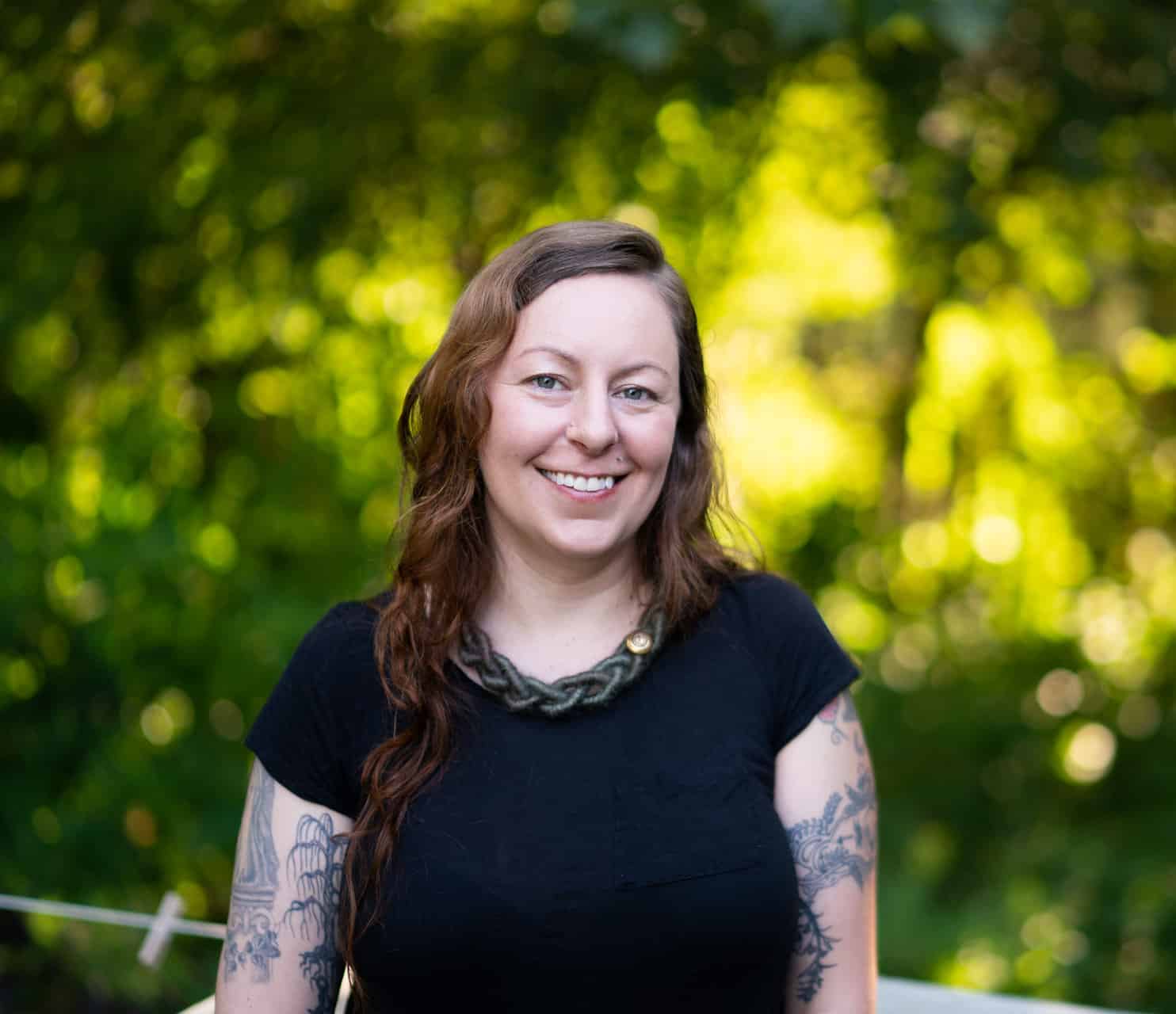CCI Alumna, Dr. Julia Skinner, is a jack of all trades. While Skinner’s current focus is food history and fermentation, she is also a curator, artist, teacher, social science researcher, and more. Skinner’s newest endeavor is her book on the history of fermentation, Our Fermented Lives. The book has become a favorite across the country with mentions in Salon’s “Favorite Books of 2022” and Smithsonian Magazine’s “The Ten Best Books About Food in 2022.” It also received the Silver Nautilus Book Award in April 2023.
 “I’ve been so thrilled with the positive response the book has gotten: I’ve done probably 30 or 40 radio and magazine interviews about the book so far, but didn’t know it was going to be featured here (Smithsonian Magazine),” Skinner said. “And that the book was among some favorite friends and fellow authors, like Michael Twitty, made it all the sweeter.”
“I’ve been so thrilled with the positive response the book has gotten: I’ve done probably 30 or 40 radio and magazine interviews about the book so far, but didn’t know it was going to be featured here (Smithsonian Magazine),” Skinner said. “And that the book was among some favorite friends and fellow authors, like Michael Twitty, made it all the sweeter.”
Skinner’s interest in fermented foods is not a new one. During her time at Florida State University, she often brought pickles and baked goods to gatherings that the College of Communication and Information (CCI) held. Through other research interests, Skinner studied food history and noticed there were not any books on the history of fermentation. Her dream of writing about the subject became a reality when her agent, Lisa Ekus, was willing to take on the task of finding the book a home.
“I wrote it before and during lockdown, and it was really interesting to write about food security and traditional cooking techniques, and our eagerness to connect with foods that keep us grounded and sane, while watching that play out in real time around me,” Skinner said.
Her long-time passion for cooking, however, did not get her into the food writing world. Before coming to FSU, Skinner worked on her Master of Library and Information Science (MLS) at the University of Iowa. It was her interest in a cookbook that inspired Skinner to pursue food history research.
“During my MLS at the University of Iowa, I encountered a rare cookbook that really sparked my interest in diving into the history of food,” Skinner said. I stayed connected with food history research and food writing to various extents over the following years, and finally made it my full-time focus in 2018 with the founding of my business, Root, and the growth of my freelance writing career.”
In 2015, Skinner received her PhD from FSU in Information Studies and credits what she learned during her dissertation in preparing her for her current work and research. Working with the School of Information’s professor, Dr. Melissa Gross, Skinner completed her dissertation on Ernestine Rose and the Harlem Public Library: Theory Testing using Historical Sources.
“Since education is such a strong component of my current work, the pedagogical training I received certainly comes in handy,” Skinner said. “And because my work is also very research-heavy, I rely on the research skills I learned during my dissertation work as well as the skills I’ve gained within the field of librarianship itself. Melissa Gross was a wonderful dissertation advisor, and her dedication to helping me grow as a scholar and a writer has really made a lot of this possible.”
Looking toward the future, Skinner wants to incorporate her writing career more into her business and other aspects of her life. Her latest book, Our Fermented Lives, also won’t be her last, as she and her agent have a few book proposals in the works. In the meantime, Skinner also publishes her weekly newsletter and writes for magazines like Food and Wine.
“More and more, I’m tying my writing career into my business and finding it dovetails with many aspects of my life, whether I’m consulting on a film or novel, serving as an expert witness, or teaching a fermentation class,” Skinner said. “I love to share the cool things I find during my research, and hope to continue growing a career where I get to do more and more of that!”
As far as long-term goals, Skinner has big plans. Combining her interests in writing and visual arts with cooking, she eventually wants to set up a creative residency program either in Georgia and/or in Ireland.
“I love the idea of everyone creating and learning together, and I’ve had a wonderful time when I’ve done residencies like this in the past. I want to share that richness with others! There are lots of moving parts to get the plan in motion, like funding and securing a visa or dual citizenship, but I’m confident it will happen.
Learn more about Julia here on her website and check out her book, Our Fermented Lives, on Amazon. Since writing this story, Julia has also been named a finalist for the André Simon Book Awards, the prestigious annual awards for food and drink books.

